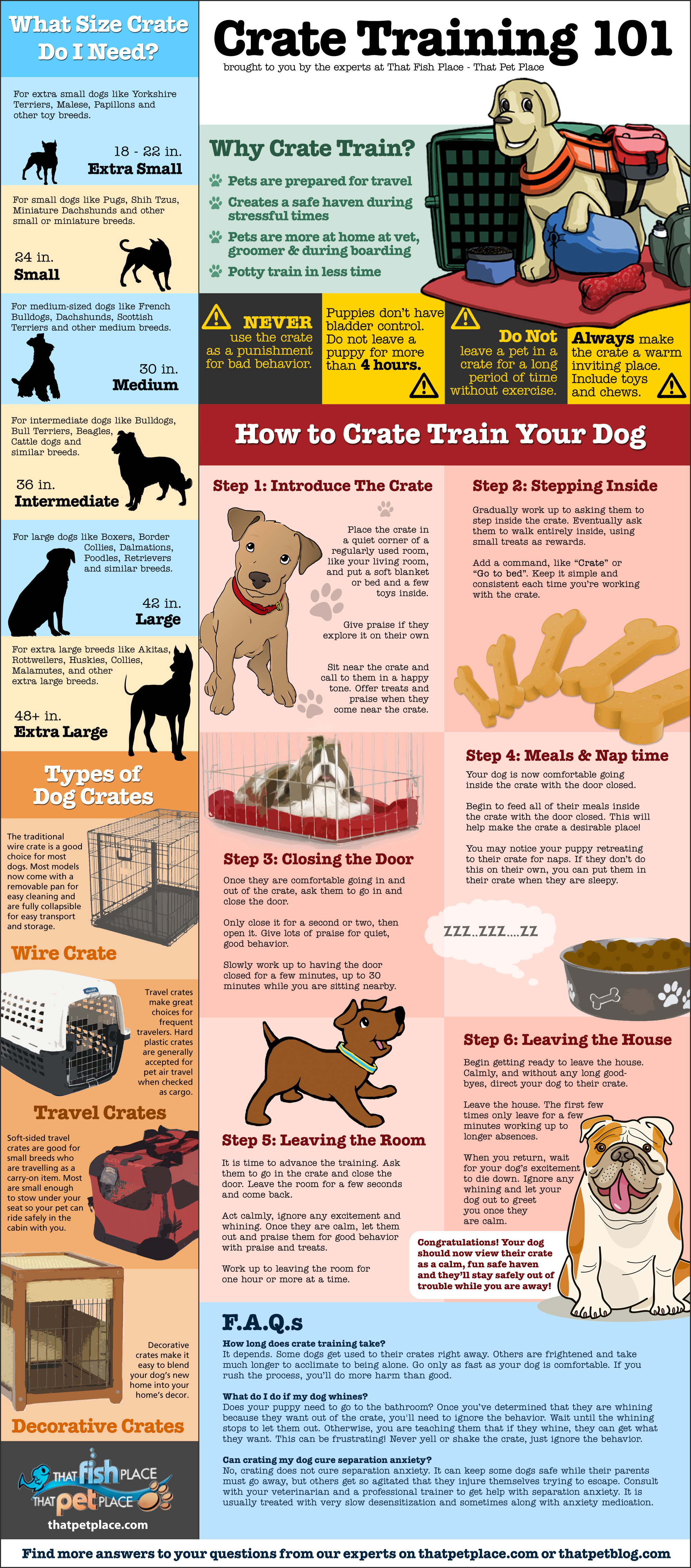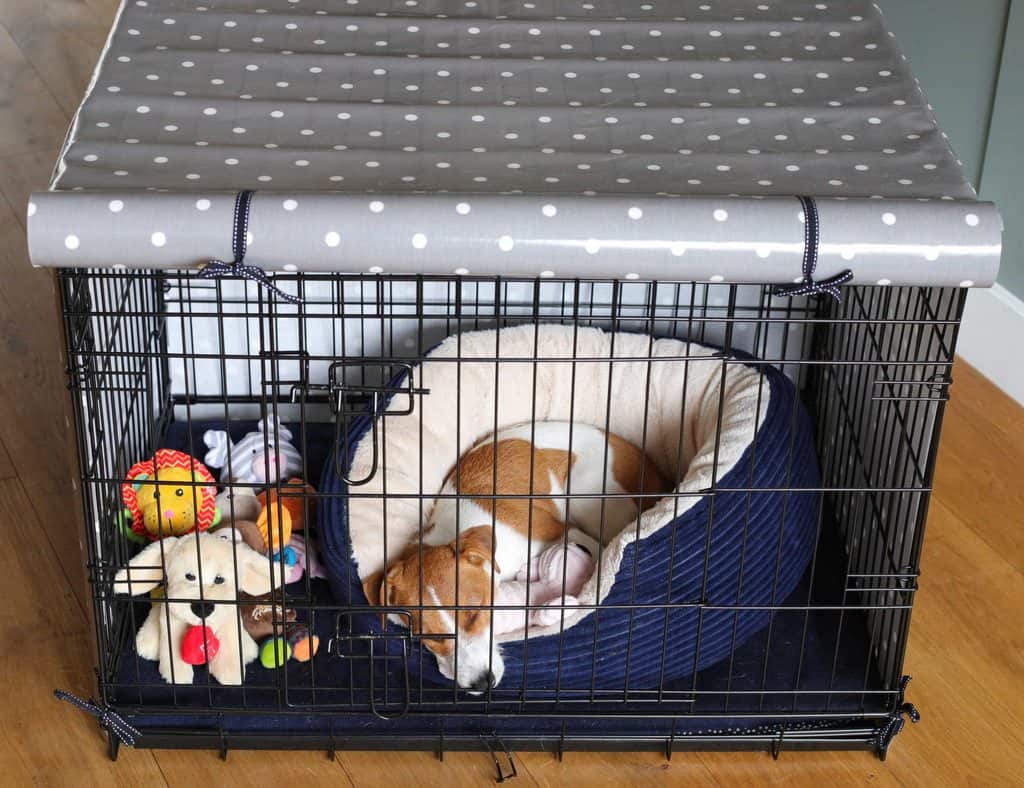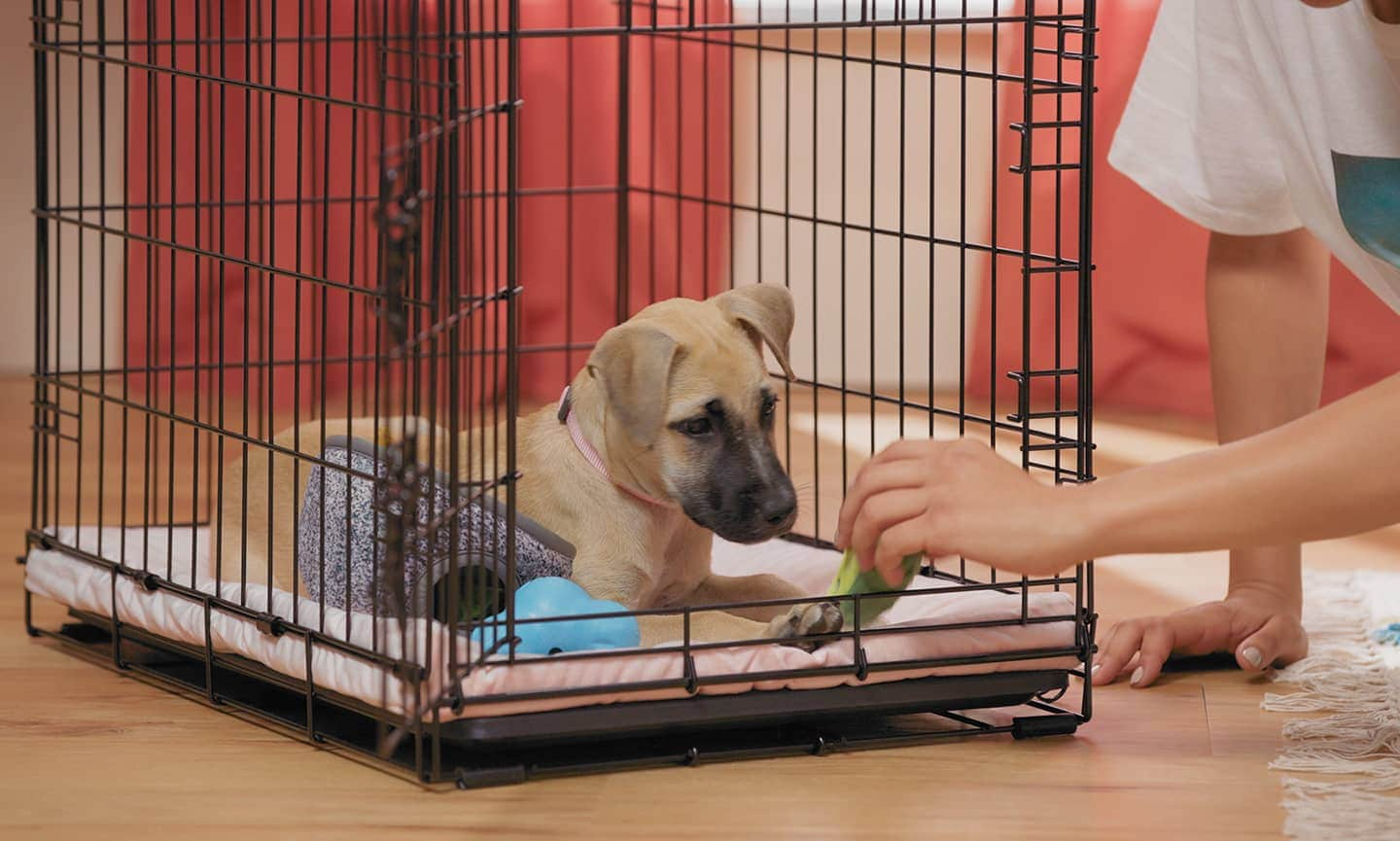how to crate train a dog
How to Crate Train a Dog
Introduction
Crate training is a valuable tool for teaching your dog good manners and behaviors. It can also help to keep your dog safe and secure when you're not home. In this article, we'll discuss the benefits of crate training, how to get started, and common problems to avoid.

Benefits of Crate Training
There are many benefits to crate training your dog, including:
- Prevents destructive behavior. When a dog is left to its own devices, it may become bored and destructive. Crate training gives your dog a safe place to relax and unwind when you're not home.
- Provides a sense of security. Dogs are den animals, and they naturally feel safe and secure in small, enclosed spaces. A crate can provide your dog with a sense of security, especially when you're away from home.
- Helps with housetraining. Crate training can help to speed up the housetraining process by teaching your dog to associate the crate with going to the bathroom.
- Makes travel easier. If you're planning on taking your dog on car trips or vacations, crate training will make the experience much more enjoyable for both of you.

How to Get Started
Crate training should start when your dog is a puppy. The younger your dog is, the easier it will be to crate train them.
- Choose the right crate. The crate should be big enough for your dog to stand up, turn around, and lie down comfortably. You can find crates in a variety of sizes at pet stores or online.
- Line the crate with a comfortable blanket or bed. This will make the crate more inviting for your dog.
- Introduce your dog to the crate gradually. Start by placing the crate in a room where your dog spends a lot of time. Leave the door open and let your dog explore the crate on their own.
- Once your dog is comfortable going in and out of the crate, you can start closing the door for short periods of time. Start with just a few minutes and gradually increase the time as your dog gets used to it.
- Never force your dog into the crate. If your dog shows any signs of distress, such as whining or barking, open the door and let them out.
- Be patient and consistent with crate training. It may take a few weeks or even months for your dog to fully learn how to use the crate.

Common Problems to Avoid
Here are a few common problems to avoid when crate training your dog:
- Don't use the crate as punishment. The crate should be a safe and comfortable place for your dog, not a place to be punished. If you use the crate as punishment, your dog will associate the crate with negative experiences and will be less likely to cooperate.
- Don't leave your dog in the crate for too long. A puppy can only hold their bladder for about one hour for every month of age. An adult dog should not be left in the crate for more than eight hours at a time.
- Don't let your dog bark or whine in the crate. If your dog starts barking or whining in the crate, don't give in and let them out. This will only reinforce the behavior. Instead, wait until your dog is quiet for a few minutes before opening the door.

Conclusion
Crate training can be a great way to teach your dog good manners and behaviors. By following these tips, you can help your dog to learn how to use the crate and enjoy the benefits of crate training.
Additional Resources
/crate-training-puppies-2805067_v2-5be49c54c9e77c0051442812.png)
- The American Kennel Club's guide to crate training
- The Humane Society's guide to crate training
- PetMD's guide to crate training
Thank you for exploring our website by how to crate train a dog. Your presence fuels our commitment to excellence. Come back for a more enriching experience!
